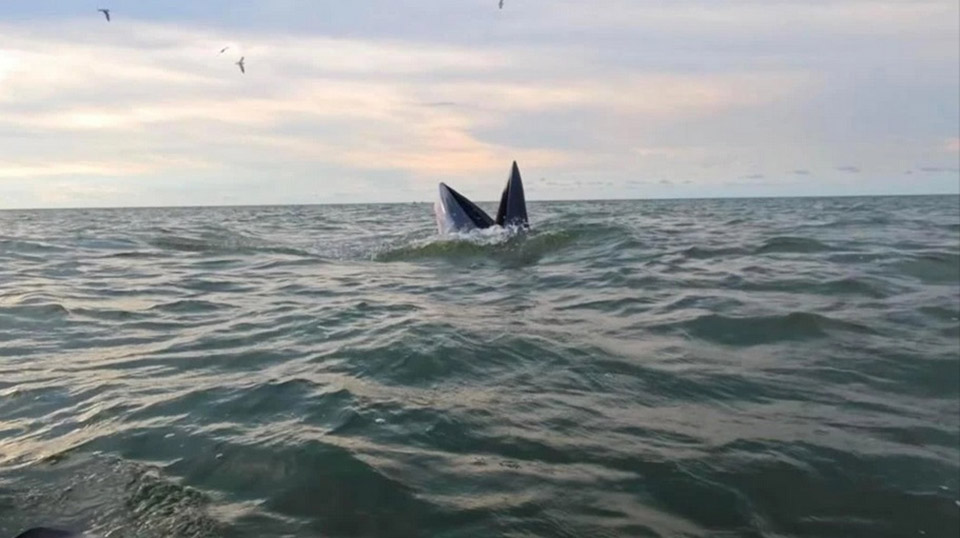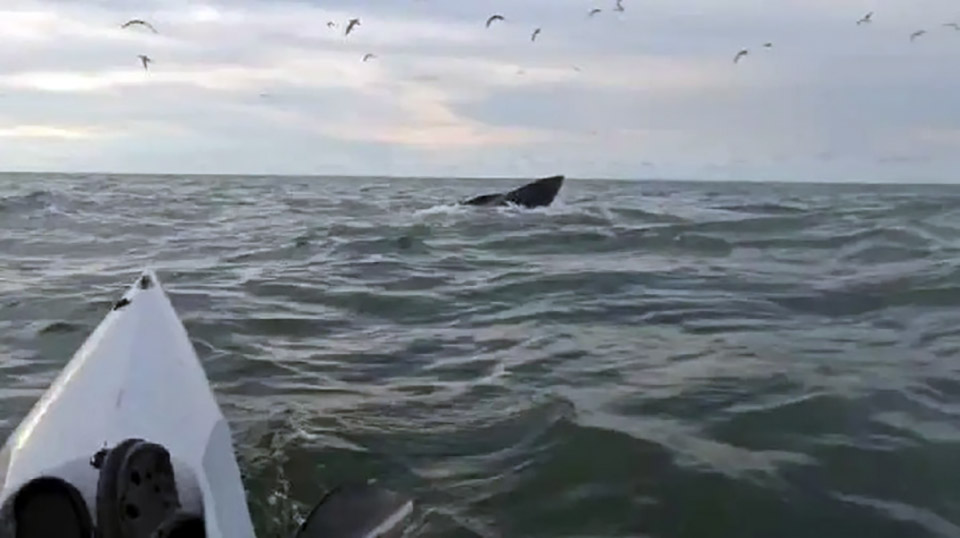
The popular Facebook page “Chob Chang Bang Saen” (Love Bang Saen) posted photos of Bryde’s whales surfacing in the waters of Bang Saen, Chonburi province on August 18. The whales were reportedly in the area searching for food. According to the post, “Bryde’s whales are back in Bang Saen this evening, likely looking for more food.” It was confirmed that there were multiple whales, with the sighting sparking excitement among tourists and locals alike.
Visitors shared their thoughts, commenting that the Bryde’s whales return to the Bang Saen area every year, with some estimating the pod to consist of 5 to 6 whales. Others noted that the whales were likely drawn to the area by an abundance of fish. The appearance of the whales was seen as a sign of the health and richness of the local ecosystem.
Videos also captured by the Bangsaen Paddling Club and TikTok user @anusornchadee showed kayakers paddling out to sea, where flocks of seagulls circled overhead. Moments later, the head of a Bryde’s whale emerged from the water, thrilling those present. The whales were sighted about 3 kilometers from Bang Saen Beach, near Laem Thaen and Khao Sam Muk.
On August 19, a reporter visited the Bang Saen Paddling Club, a local café offering kayaking lessons and lodging. The club’s owner, Anusorn Chadee, known as “Kru Oh,” shared his experience of encountering the whales while out kayaking. He described the sighting as a once-in-a-lifetime experience, likening it to winning the lottery. Initially, he thought there was only one whale, but upon closer inspection, he realized there were three to four. The whales swam peacefully around their kayaks, and Anusorn speculated that the whales may have mistaken their long kayaks for fellow whales.

Local fisherman and seafood vendor Eaksak Sermsri explained that Bryde’s whales are most often spotted in the morning and evening when they follow schools of fish to feed. He mentioned that the whales are attracted to areas where seagulls gather, as the birds seek to snatch fish being chased by the whales.
Eaksak called for an extension of the seasonal fishing ban by one to two months to allow marine life, including the whales’ food sources, to continue to thrive. He expressed concern that if the food supply diminished, the whales would leave the area. Although whale sightings cannot be predicted, Eaksak noted that engine-powered boats tend to scare the whales away, whereas kayaks and paddle boats offer a better chance of approaching them.
Social media comments reflected both excitement and concern, with many celebrating the whales’ presence as a sign of environmental health, while others worried about the impact of pollution, especially marine debris, on the whales’ well-being.
This rare sighting of Bryde’s whales serves as a reminder of the importance of preserving and protecting Thailand’s coastal ecosystems.











